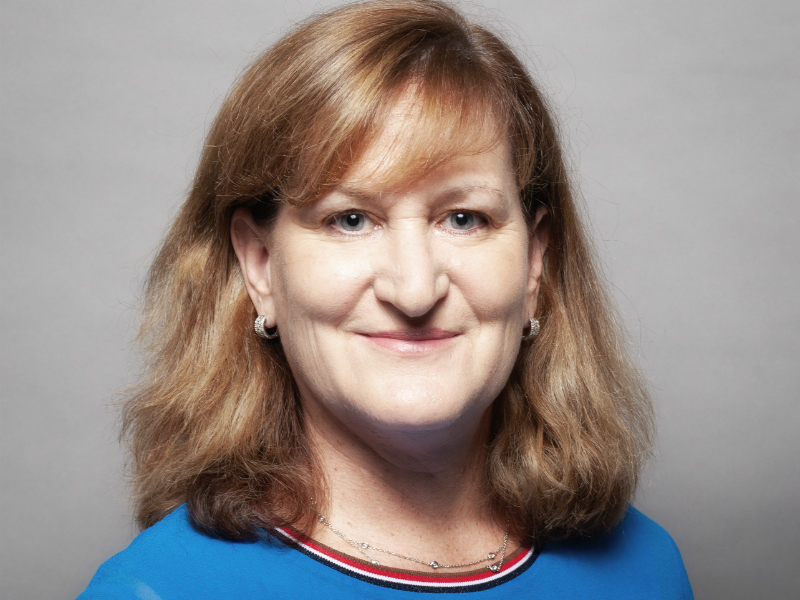With 1.2 million young Canadians struggling with anxiety, depression, addiction and bipolar disorder, many believe this country is facing a mental health crisis. But Leanne Matlow has set out to change that by creating Mental Health Empowerment Day (MHED), a symposium designed to educate parents and those who work with children and youth in community settings that takes place on Oct. 27 in Toronto. Matlow is a teacher, guidance counsellor and cognitive behavioural therapy counsellor with a private practice specializing in anxiety in children and adolescents. She became a mental health advocate after discovering the prevalence and regular misdiagnoses of anxiety-related issues in the classroom. Matlow is the author of two children’s books: Thinking About Thoughts and Tell Me.
What inspired you to create MHED?
The inspiration came from my work as a teacher and guidance counsellor. I would meet with students and learn that they were struggling with anxiety. Teachers were aware of misbehaviours and disorganization in the classroom that were often misdiagnosed as ADHD. I got trained to help those kids and the teachers. I really wanted to help kids understand they could do more.
Who is MHED for?
The event is for everyone – parents, teens, teachers, camp counsellors, hockey coaches, March of the Living chaperones and professionals. We have young, “lived experienced” speakers. Nothing is more powerful than hearing from somebody who has lived with struggle and come through it on the other end. Not only does it provide hope, but you also learn coping strategies. I want people to leave the event with a new idea, compassion, the ability to not be afraid to speak out or to say, “this is also happening in my life,” or with people they know.
Explain this year’s theme: what I wish you knew.
What I wish you knew allows for an accurate sharing of what is helpful to a person experiencing a mental health challenge and what is not. This year, we are going to have the opportunity to hear from a parent. Parents are often the first to know when something does not seem right with their child, but they don’t know what they are seeing or where to turn. Parents don’t wish to share these types of problems because they feel shame. If they only did share, they would learn that many of their friends are experiencing the same thing in their homes.
Our lived experience individuals are constantly coping, yet living a productive life, despite a diagnosis. We will hear how they feel when someone says things like, “there is nothing to worry about,” or “snap out of it,” and whether they want their teachers to accommodate or push them. One of the big issues that will be discussed is how the legalization of marijuana affects addiction and how that will impact youth.
Panelists include: Dr. Ari Zaretsky, psychiatrist-in-chief, Sunnybrook Health Sciences Centre; Donna Green, founder and president, Stella’s Place; and Ori Goldstein, president and CEO, JACS Toronto. The event will be moderated by Peter Akman, an investigative correspondent for W5, who really cares about the topic and will facilitate
a robust discussion. We are also hearing from the Family Navigation Unit at Sunnybrook, to help people understand how to navigate the system. There will be an extensive Q-and-A – people will ask questions anonymously by writing out their questions.
Why do you think there has been a surge in mental illness among young people?
Part of it is awareness. One in five people are affected by mental illness. I think we are sort of cracking the nut of de-stigmatization. People are talking about it. The world is a harder place than it was 50 years ago for youth. Kids today are experiencing the constant stream of competition and comparison on social media. We have to use technology in a positive way and by teaching coping and resiliency skills from a very young age.
How do you build resilience?
It comes from being honest that things are sometimes hard. The question isn’t “How do I get my kid out of the fix?” It’s “How do I teach them to problem solve and manage?” For example, by letting kids try out for a team and not make it and helping them understand how that is a learning experience and not life-altering. We talk about self-esteem, but that’s not just about being successful, it’s also about having that moment of victory when something was difficult and we struggled through it and you did it anyway. It’s by teaching kids to ask for help and that is a sign of strength and not one of weakness.
Physical illness and mental illness are equal in terms of suffering and pain, and yet people with mental disorders are still plagued by stigma. What are some ways we can fight the stigma?
There is a change afoot. I find in my work that young people want to talk and that’s why this day is called Empowerment Day. We don’t chastise people if they wear glasses or use insulin, because they’re getting what they need. The same thing has to be true for mental health. This forum may help change something in your home. Or maybe in your workplace you might better understand why the guy in the next cubicle is on mental health leave.
We used to whisper about cancer, it used to be the C-word. What I want for mental health is for people to say, “I suffered, I got help and now here I am” – to get the message that hope and help are available.
This interview has been edited and condensed for style and clarity
